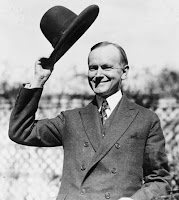The Washington, Jefferson & Madison Institute's next educational seminar will be on the subject of “Vindicating the Founders: Race, Sex, Class, and Justice in the Origins of America” based upon the book by Thomas West (Rowman & Littlefield, 1997). The Seminar includes presentations by Tony Williams, Williamsburg Author and Teacher, and Steve Brown, Associate Professor at Auburn University, on the topics of “Slavery & Liberty” and “Property Rights and the Property Requirement for Voting,” respectively. The seminar is primarily for Virginia middle and high school U.S. Government and U. S. History teachers, and will be held Friday morning, September 16th at Prospect Hill near Charlottesville (for an invitation contact jody@wjmi.org). There is no cost for teachers to attend. Following is an excerpt from a review of West's book:
Slavery is the foremost charge in the indictment. The Constitution failed to abolish slavery, indeed compromised with it; and some Founders were actually slave-holders. So how could they believe that all men are created equal? One eminent historian says the Declaration meant merely that "all white men are equal."
Mr. West is able to quote all the Founders strongly denouncing slavery for blacks. Then was their eloquence all for naught? The reductionist view reads their words in the light of progress today: We think slavery is wrong and abolished it. If they did not abolish it, they must not have thought it wrong.
"Naivete" is one excuse for such reasoning, envy for a generation far more accomplished than ours is another. Not only did it make no sense for the Founders to exclude the slave states, from the new union of 1787, which would have allowed a slave Confederacy an unopposed beginning on an equal footing with a free republic—but also, as Mr. West reminds us, the principle of equality was as subversive as it was foundational. While compromising with slavery, the Founders asserted a principle that undermined that very compromise—"condemning [slavery], confining it, and setting in motion the forces that would ultimately destroy it, " in the words of the historian Bernard Bailyn.
Nor was the compromise based on mere amoral calculation. Mr. West points out that the principle of equality itself has two parts that often conflict. One is equal rights; but among those rights is the right of consent to government. The trouble is that through prejudice people may not accord equal rights to others; yet the right of consent belongs just as much to people with prejudice as to the enlightened.
So the principle of equality requires an effort of persuasion, even if it may ultimately fail, as in the period leading up to our Civil War. It was precisely in accord with the principle of equality that the Founders—and later, Abraham Lincoln—made an effort to persuade those opposed to equality for blacks. In doing so they set an example of democratic behavior ignored by their facile critics, who suppose that what seems easy to us must have been easy for them.
Mr. West's book is not confined to the issue of slavery. He also discusses such topics as [property rights], women's rights, poverty and immigration...”
From:
“Men of Principle”
by: Harvey C. Mansfield
by: Harvey C. Mansfield
The Wall Street Journal (Minneapolis, MN), November 26, 1997.












